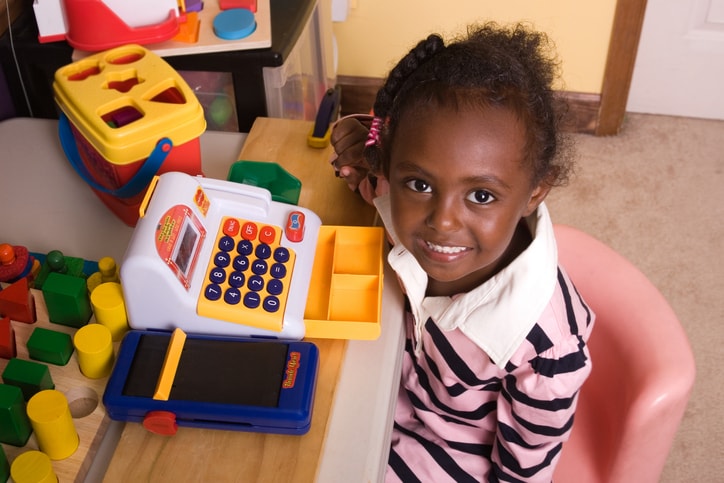Gadgets can be exciting, but imaginative play is where the real fun happens. Plus, the land of make-believe is brain-boosting and can help children with social and emotional development. It’s screen-free, but children will get into the spirit of make-believe, especially when you let them make the important creative decisions.
“Spontaneity is the name of the game,” according to Dr. Michael Amster, pediatrician and founder of Warrenton Pediatrics in Virginia. “The best imagination-cultivating activities are ones in which the child drives the play. Setting the stage for them starts to define the rules.”
Set your child’s imagination in motion with these six make-believe games.
1. Play charades
Kids will love the fast pace of charades, with each player having just one minute to act out their item or character. Jot down a few simple charades words such as “eating,” “bowling,” “reading” and “laughing” on pieces of paper that can be folded in half and put into a hat. If the kids are older, include more complex characters like “pirate” and “queen.”
2. Put on a show
Sher Sheets, a Chicago nanny with more than 10 years of experience, says her go-to strategy is to have children put on a show. “Kids always surprise me with their craft and ingenuity when I ask for a show,” she says. “From puppets and talent shows to mysteries and everything in between, I’m always impressed. It’s as though they’re just waiting for the challenge.”
Have your kids take turns designating a director. That way, each one can express their creativity.
3. Role-play

Pretending to be ninjas, princess-warriors and doctors can be super inventive, but creating roles can also let kids discuss emotions they might not understand yet, explains Cheryl Lawrence, a certified child life specialist at Inova Fairfax Hospital.
“When we provide these types of opportunities,” says Lawrence, “children feel safe to explore and grow and make sense of the world around them.” For instance, in a game of “doctor and patient,” questions like, “The patient seems really scared. What is she thinking right now?” or “What can help her when she is scared?” allow children to understand emotions from other perspectives.
4. Add a new twist to a favorite story
Try having your kids tell a favorite story and add a surprise ending. They can take turns deciding which direction their adventure will go. Give the example of an old classic with a varied ending or cameo appearance from a character in another story.
Once the surprise ending is complete, have the next player start over from the beginning with a new ending in mind.
5. Dress up like adults
Keep all of your old flip phones, ticket stubs, purses, eyeglasses and picture IDs to put in a “grown-up bag” for your kids. Add a wallet with a few dollars of real cash to lend the perfect amount of authenticity. The real bills and coins will spark their imaginations for the perfect make-believe game of “grown-ups.”
6. Create a business

Are the kids business savvy? Ask them to create their own restaurant (or ice cream shop) and to give them creative names. Then have them design menus to include appetizers, entrees, desserts and drinks along with prices for each item. They will have fun coloring and decorating the menus to suit their restaurant’s theme.
After they’ve finished their menus, have them draw a floor plan for how they’d set up the restaurant. Revisit this activity often, and see how your kids build upon or modify the businesses over time.
Remember, the most important element in encouraging a child’s imagination is letting them make the decisions. Pretend play not only strengthens emotional and social skills like improvisation and empathy, but it also gives kids a chance to build strong problem-solving abilities. And those are powers your little actor can’t make up!
*Article originally written by Bethany Johnson.




